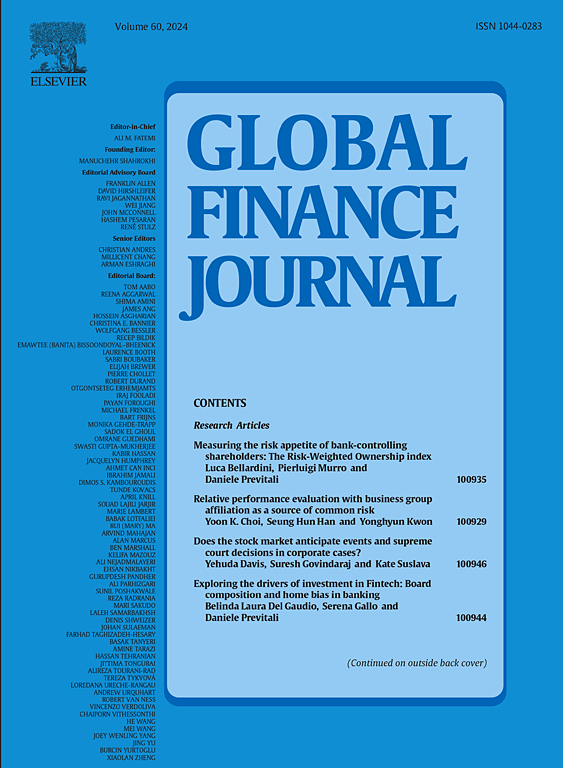Global power and Stock market co-movements: A study of G20 markets
Abstract
It is well understood that a handful of countries such as members of G7 and G20 influence the direction of the trade policy of nations across the world. Such influence places significant pressure on other countries to adapt their own policies to suit G7 and G20 as these two groups of countries control international agencies such as the World Bank and the United Nations. This influence is also evident from the deliberations of G7 and G20 member countries and how such more powerful nations seem to shape and influence the global economic agenda. This study aims to investigate the relationship between global power (as measured by the global power index GPI) and globalisation (as measured by the co-movements of stock markets time varying correlations). Previous studies have investigated various factors influencing stock market correlations; however, the relationship between GPI and stock market correlations has not been addressed thus far. To investigate this relationship, we created an index of correlations of each stock market with other stock markets in G20 countries. Our empirical results indicate that GPI has a positive and statistically significant impact on the stock market correlations in G20 nations. This is the first study to establish such relationship between GPI and change in relative stock market performance. In the past changes in relative stock market returns were mainly attributed to the economic factors and relative volatility of the underlying stock markets. As such this study makes an important contribution to body of knowledge by developing a theoretical argument to show how change in relative global power, influences changes in stock market correlations via changes in relative risk premium and returns. The findings of the study have implications for the development of global policies as global power influences stock market co-movements. The findings of this study may also have implications for investors who aim to construct globally diversified portfolios.

 求助内容:
求助内容: 应助结果提醒方式:
应助结果提醒方式:


